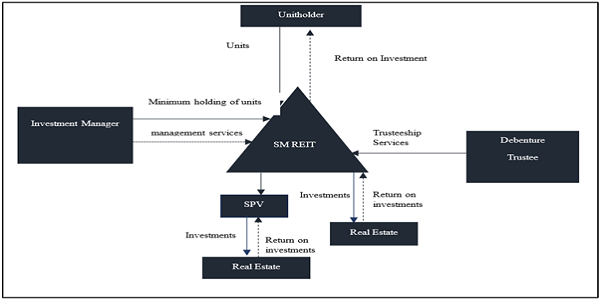CA Amit Kedia
A Limited Liability Partnership (LLP) is a partnership in which some or all partners (depending on the jurisdiction) have limited liability. It therefore exhibits elements of partnerships and corporations. In an LLP, one partner is not responsible or liable for another partner’s misconduct or negligence. This is an important difference from that of an unlimited partnership. In an LLP, some partners have a form of limited liability similar to that of the shareholders of a corporation. In some countries, an LLP must also have at least one “General Partner” with unlimited liability.
Origin
The Limited Liability Partnership was formed in the early 1990s in United States in the consequence of the collapse of real estate and energy prices in Texas in the 1980s. This collapse led to a large wave of bank and savings and loan failures. Because the amounts recoverable from the banks were small, efforts were made to recover assets from the lawyers and accountants who had advised the banks in the early 1980s. The reason was that partners in law and accounting firms were subject to the possibility of huge claims which would bankrupt them personally, and the first LLP laws were passed to shield innocent members of these partnerships from liability.
Apart from India Many Countries like Canada, China Germany, Greece, Japan, Kazakhstan, Poland, Romania, and Singapore have felt the need to recognize LLPs in their country.
Limited Liability Partnership in India
Preface
In India, The Limited Liability Partnership Act, 2008 was published in the official Gazette of India on January 9, 2009 and has been notified with effect from 31 March 2009. The first LLP was incorporated in the first week of April 2009. Some sections relating to conversion of existing partnership firms and private as well as public unlisted companies into LLP have been brought into force on 31-5-2009
At present, there are about 10,000 LLPs formed and registered under the Limited Liability Partnership Act.
Salient features of an LLP
- An LLP is a body corporate and legal entity separate from its partners. It has perpetual succession.
- Being the separate legislation (i.e. LLP Act, 2008), the provisions of Indian Partnership Act, 1932 are not applicable to an LLP and it is regulated by the contractual agreement between the partners.
- Every Limited Liability Partnership shall use the words “Limited Liability Partnership” or its acronym “LLP” as the last words of its name.
- It contains elements of both ‘a corporate structure’ as well as ‘a partnership firm structure’.
- Every LLP shall have at least two designated partners being individuals, at least one of them being resident in India and all the partners shall be the agent of the Limited Liability Partnership but not of other partners.
- LLP agreement is not mandatory but in the absence of LLP agreement, mutual rights and liabilities of partners shall be determined as provided under Schedule I to the LLP Act.
Advantages of forming an LLP
- LLP form is a form of business model which is organized and operates on the basis of an agreement.
- Liability of partners is limited to their agreed contribution in the LLP and no partner is liable on account of the independent or un-authorized actions of other partners, thus individual partners are protected from joint liability created by another partner’s wrongful business decisions or misconduct.
- LLP has more flexibility and lesser compliance requirements as compared to a company.
- Simple registration procedure, no requirement of minimum capital, no restrictions on maximum limit of partners.
- It is easy to become a partner or leave the LLP or otherwise.
- It is easier to transfer the ownership in accordance with the terms of the LLP Agreement.
- As a juristic legal person, an LLP can sue in its name and be sued by others. The partners are not liable to be sued for dues against the LLP.
- No restriction on limit of the remuneration to be paid to the partners like companies, but the remuneration must be authorized by the LLP agreement and it cannot exceed the limit prescribed under the agreement.
- The Act also provides for conversion of existing partnership firm, private limited Company and unlisted public Company into an LLP by registering the same with the Registrar of Companies (ROC).
- No exposure to personal assets of the partners except in case of fraud.
Disadvantages of forming an LLP
- Any act of the partner without the consent of other partners, can bind the LLP.
- Under some cases, liability may extend to personal assets of the partners.
- An LLP are not allowed to raise money from Public.
- Because of the hybrid form of the business, it is required to comply with various rules & regulations and legal formalities.
- It is very difficult to wind up the business in case of exigency as there are a lot of legal compliances under Limited Liability Partnership (Winding Up and Dissolution) Rules and it is very lengthy and expensive procedure.
How to Form of an LLP???
Any two or more persons can form an LLP. Even a limited Company, a foreign Company, a LLP, a foreign LLP or a non-resident can be a partner in LLP. Although, there is no specific mention, a HUF represented by its Karta and a Minor can also be partner in LLP.
An Incorporation document (similar to memorandum) and LLP agreement (similar to articles of association) is required to be filed electronically. The Registrar of Companies (ROC) shall register and control LLPs.
Steps to form an LLP:-
Accounting aspects of Limited Liability Partnership
Every LLP shall maintain books of accounts and submit a statement of accounts and solvency within a period of 30 days from the end of six months of the financial year. It is also required to file annual return within 60 days from the end of the financial year. Apart from that, an LLP is also required to get its accounts audited if annual turnover exceeds Rs. 40 Lakhs or the contribution exceeds 25 Lakhs.
Revised Schedule-VI to the Companies Act, 1956 is not applicable to an LLP. It applies to all companies registered under the Companies Act but LLP is a body corporate and not a company.
Taxation aspects of Limited Liability Partnership
Income Tax
Budget 2009-10 has brought provisions regarding taxation of LLPs. Limited Liability Partnership will be treated as Partnership Firm for the purpose of Income tax and accordingly, all the relevant provisions regarding taxation of partnership firm has been modified.
The Income of LLP will be charged to tax in the hands of the LLP only and not in the hands of individual partners. Remuneration to partners will be taxed as “Income from Business & Profession” and share of profit in the hands of the partner is exempt from tax u/s 10(2A). The LLP is allowed to get deduction of remuneration paid to the partners subject to the maximum of limit prescribed u/s 40(b).
Benefit of presumptive taxation is not given to an LLP. At present, the Income of an LLP is taxable @30% plus education cess but surcharge is not applicable to an LLP.
The LLP is also subject to alternate minimum Tax (AMT) which is similar to minimum alternate tax (MAT) in case of companies. However, there is no concept of book profit and it is calculated based on the adjusted total income. The Income tax law has also been modified for bringing the taxation aspects of conversion of Private Company or unlisted Public Company into an LLP on the paper. There are no tax implications on conversion of a partnership firm into an LLP.
Note: Now all the persons other than company are also subject to alternate minimum tax with effect from 01/04/2012.
Service Tax
For the purpose of Service tax also, an LLP will be treated as partnership firm only. Service Tax Rules, 1994 has been amended by the Service Tax (Amendment) Rules, 2012 to consider LLP as a partnership firm.
Even when the word “body corporate” is used it will not include LLPs despite of its legal status being a body corporate. Accordingly, partial reverse charge is also not applicable to an LLP.
Sales Tax/Vat:-
Under Sales tax, LLP is treated as body corporate. The definition of “Dealer” under Central Sales Tax, 1956 includes body corporate also.
Actually, there is no dissimilarity in partnership firm, company, body corporate etc with regard to payment, returns, audit etc. under sales tax. Provisions for different kind of dealers are distinguished based on the volume/size or turnover of the dealer and not on the basis of the status of the dealer.
Different perspective of Limited Liability Partnership
Manufacturing Sector:-
Limited Liability Partnership is recognized as legal form in the manufacturing sector. Many small and medium enterprises have enjoyed the dual advantage of less compliance with higher access to credits in the market.
Service Sector:-
LLP has come like boon for the service sector and especially for professionals like chartered accountants/company secretaries & advocates.
MCA has also clarified that for the limited purpose of section 226(3) of companies act, 1956, an LLP shall not be treated as body corporate and accordingly, an LLP of Chartered Accountants is allowed to conduct statutory audits of companies.
In short, LLP can be formed to do any type of business (manufacturing, trading, commercial or professional service) for the objects to earning the profit. However, it cannot be formed for the charitable purpose.
Foreign Direct Investment in LLPs
Foreign Direct Investment in Limited Liability Partnership is allowed, with the specific approval of the government, in those sectors/activities where 100% FDI is otherwise allowed under the automatic route and there are no FDI-linked performance related conditions.
(Author can be reached at amit.kedia@kewalkiran.com)





















Can a minority shareholder (30%) be the managing partner for a LLP?
Can the minority shareholder protect themselves from being bought out or fired in the future by the majority shareholder?
Sir,
A LLP Co was been constituted in the year NOV 2013 with a partner who was relieved in the month of july’ 2014 after introduction of new partner. Two new injection molding machines were purchased in the month of Feb/2014 and another on e was purchased in the month of Dec/ 2014 for job work of plastic auto parts i.e.third part job work.
On account of recession in auto industry job work was not sustained and bound to dispose off the assets to pay the bank loans. However the assets were sold by loss. I want to know weather any kind of tax such as VAT, EXCISE etc. on the new machinery purchased, will be paid.
Our Public Limited company converted to LLP w e f 3rd march 2015. please clerify the followings.
1. whether PAN no of LLP will remain same or will have to apply for a new PAN.
2. whether we need to file two returns for FY 2014 – 15, one for company and
another for LLP,
3. how TDS credit deducted on account of Public Limited Company can be
availed by LLP.
Mahesh Lath
Our Public Limited company converted to LLP w e f 3rd march 2015. please clerify the followings.
1. whether PAN no of LLP will remain same or will have to apply for a new PAN.
2. whether we need to file two returns for FY 2014 – 15, one for company and
another for LLP,
3. who will TDS credit deducted on account of Public Limited Company will be
availed by LLP.
Mahesh Lath
Can LLP take unsecured loans ?
Sir is there any time period for which the llp has to continue after its conversion from private limited company or we can dissolve such llp immediately after conversion?
Like in a Private Limited Company the Board legally has the authority and comes under the ROC governance to decide on Bank account operations limits etc in LLP is it that the Designated Partners takes all the call and then who does the governence
I wish to know that can a LLP have the ease of transferring and changing of capital i.e. increase or decrease the capital during the year? Can it take loans from the partners? Do we have to pass resolutions like its done in companies?
Please help me. We are a partnership right now and are looking into converting into LLP.
Thanks.
sir,
have u any more knowledge about this topic i.e scope in india , case law etc.
Rejoinder@ Amit Kedia
It can at best, in my most humble opinion, be regarded to have been put across by way of clarifying HIS OWN THOUGHTS AND UNDERSTANDING.
My comment, albeit being cryptic,as could have been noted, was simply intended, not seeking and procuring any external help, particularly from the writer himself, that too for my ‘better understanding’ of the things ; but, as has always been my wont, intended as a feedback comment to provoke / inspire THE OTHERS, especially ‘experts’ at large to accord more thoughts and multi dimensional application of mind to my points of doubt as briefly posed. For, only then, ideally speaking, any information (if not profound ‘knowledge’ or expert views) sought to be disseminated through such writings could really be useful and enlighten the readers on the subject matter.
Sorry! Even on giving a second reading, I could not find anything covered, even remotely, on THE ASPECT, crucial one at that, referred by me , which , in my view, must be “ essentially of concern or potential disadvantage to the ‘consumers’ / ‘customers’ (in a comprehensive sense)”. With a view to saving myself from the hassle involved in elaborating it, I can only suggest, -any ‘expert’, if so inclined and want to know more about the implied complicity,- more so to be of some useful guidance/providing intelligent clues to the readers of this site, wanting to be similarly enlightened just as me, – need to spare the trouble of at least going through the cited published articles.
The ICAI / its knowledgeable members has/have, for reasons obvious or otherwise, all along, right from inception, directly associated itself/ themselves with and been proactively involved in the deliberations over the subject of LLP; not only before but after its enactment as well. As such, it will be in the fitness of things that their attention is drawn to the several write-ups thus far published on this site. Do so, in the fervent expectation that could help in, if nothing else, at least it/its inhouse experts bringing about some clarity/better understanding on any one or more of the left-out areas – ‘imponderables’, so to say.
Dear Vswami ji,
At the outset, I thank you for reading and putting your valuable comments/suggestions on my article.
1. For your better understanding, i would like to elaborate it. The partners shall always be the agents of an LLP this is because as I said in my earlier paragraphs it is a SEPARATE, DISTINCT & LEGAL ENTITY and partners are doing the bussiness for it.They are acting for it and thats the reason they are called Agents for the business of LLP. But, Parters, amongst themselves, are principal to each other.
As regards the liablity is concerned, Since the every partners are treated as AGENT of LLP. Hence, the act of a partner can bind an LLP but not to other partners.
2. If you read the article very carefully then you can the solution of all your queries. It also talks about the legal form of an LLP, essentiality, advantages & disadvantages of LLP.
It covers most of the aspects which are required to included and gives an complete overview of LLP.
If you have further any doubts, queries, suggestions, comments pls mail to me at above mail id.
Thanks
1. One of the special features listed:
1. “Every LLP shall have at least two designated partners …. and all the partners shall be the agent of the Limited Liability Partnership but not of other partners.”
In one’s perception/understanding, it appears, there is no clarity on the point as to whether the liability of all partners to be regarded as the agent of the LLP, would be limited or unlimited , vis-a-vis the LLP, either collectively or individually. If so, this calls for an intensive study by the experts on the subject.
2. The write-up, in one’s view, does not seem to cover certain intricate legal implications of LLP, as a form of entity, essentially of concern or potential disadvantage to the ‘consumers’ / ‘customers’ (in a comprehensive sense).
Attempt has been made to focus on the related view points in a couple of published articles – citations- (2005)128 Comp,Cas 1; (2006)65 SCL 42